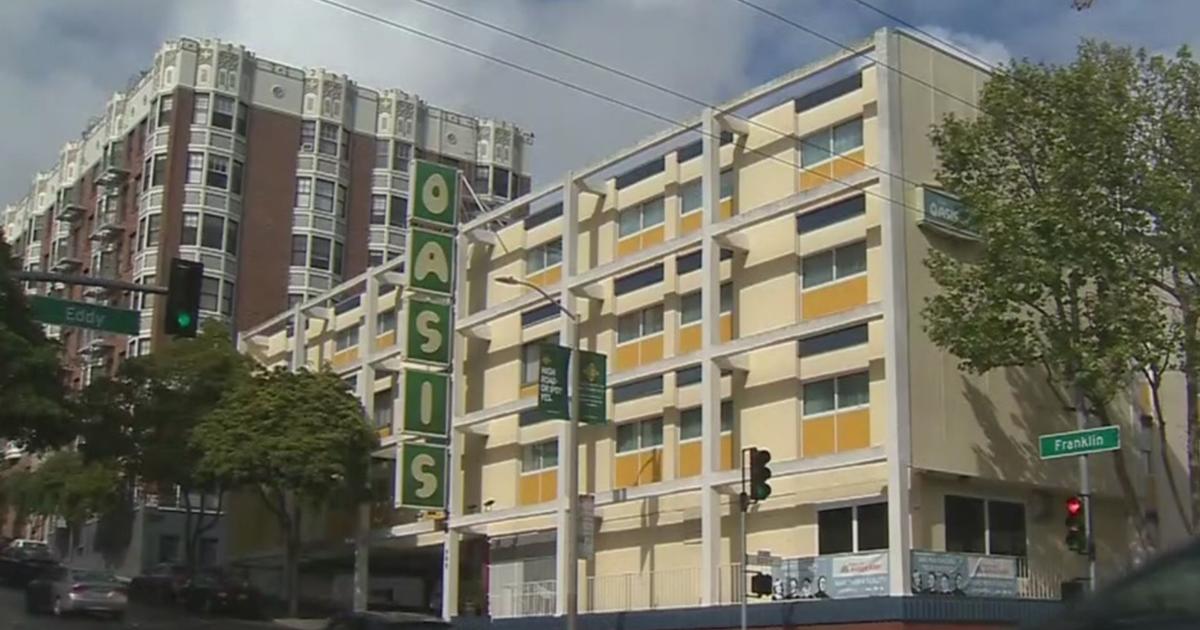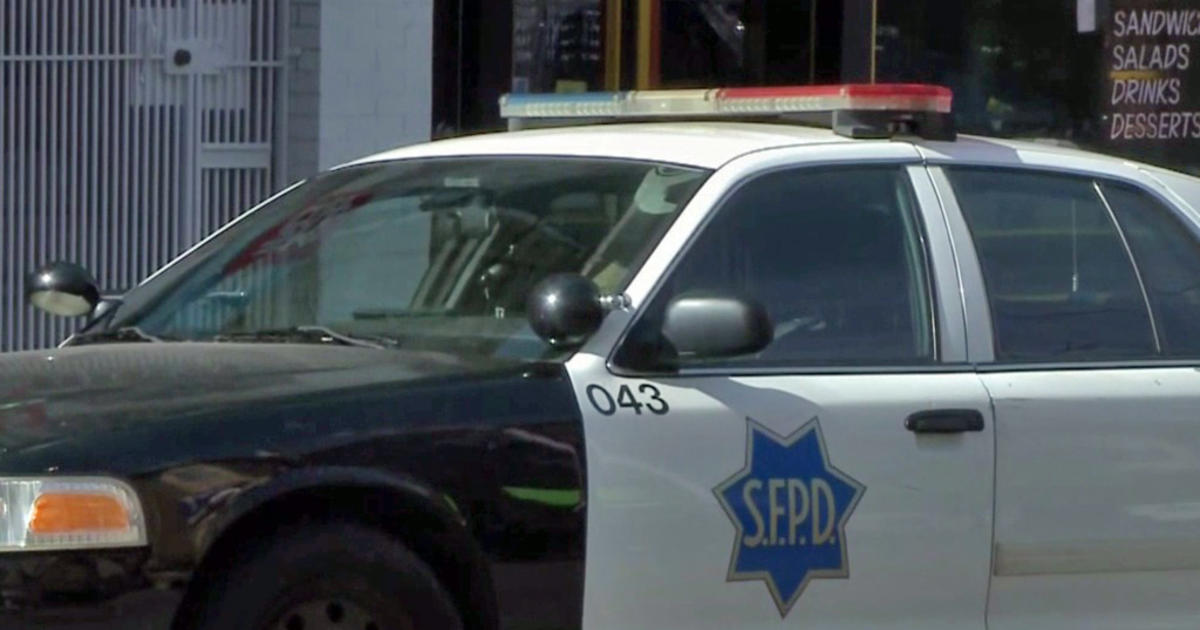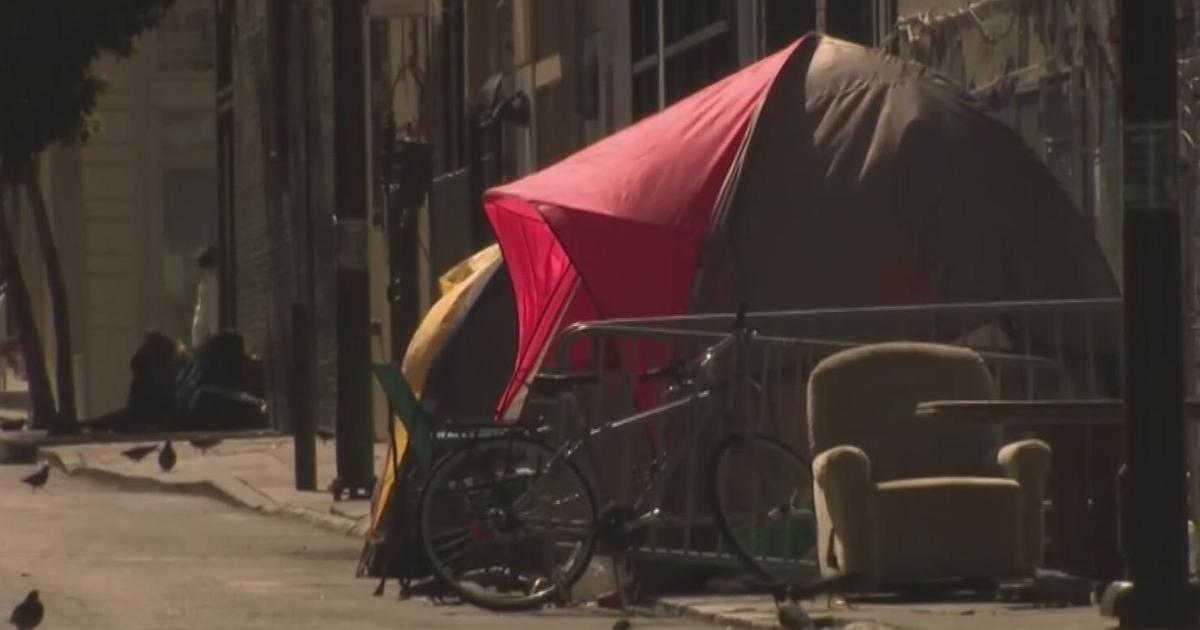San Francisco Mayor London Breed proposes drug treatment mandate for cash assistance
SAN FRANCISCO – Residents of the city and county of San Francisco with addiction problems who receive cash assistance would be required to undergo treatment to continue receiving payments under a new proposal from Mayor London Breed.
The proposal, which requires approval by the Board of Supervisors, would require people who apply for County Adult Assistance Programs to undergo screening for substance use disorder and to participate in a treatment program if they're found to have an addiction, according to a statement Breed sent out Tuesday.
"We fund a wide range of services, and we want to help people get the care they need but under current state law, local government lack tools to compel people into treatment," Breed said. "This initiative aims to create more accountability and help get people to accept the treatment and services they need."
People who refuse or who "do not successfully engage in treatment" would not be eligible for cash assistance.
Who would this apply to? Specifically, homeless and formerly homeless, single adults, between the ages of 18 and 65, receiving anywhere from $700 to about $800 in cash assistance through San Francisco's General Assistance program.
And we're just talking about the cash payments, not any housing assistance. G.A. is a program that exists in every county in California, and it can legally be tied to drug treatment.
That is what the mayor has proposed.
"Last week alone, 80 people were contacted and touched out on the street, asked if they wanted services, provided treatment on demand," Breed said Tuesday. "And only one agreed."
Breed said it is about moving people towards treatment and saving lives, two things San Francisco has struggled with. She also referenced conditions on city streets.
"But no more anything goes without accountability," the mayor said.
Supervisors Catherine Stefani, Raphael Mandelman and Matt Dorsey all voiced support for the proposal, according to Breed's announcement.
Keith Humphreys, an addiction researcher at Stanford University, has been tentatively supportive of some of San Francisco's efforts to push those in serious trouble towards treatment. But he has questions about this strategy.
"Right now, the city is not able to provide addiction treatment to people who are committing crimes that threaten public safety," Humphreys told KPIX.
"I guess what I would say is, if I am the mayor, I would prioritize the place where the harm to the public is the greatest and the actual case for intervention is the highest," Humphreys argued. "Which are people who break the law."
Board of Supervisors president Aaron Peskin, however, released a statement Tuesday saying Breed should focus on stopping dealers and open-air drug markets rather than "drug testing people on welfare."
"If she can't find the way to prevent several hundred brazen criminals from selling deadly drugs -- how does she think she will find the resources to drug test thousands of welfare recipients?" Peskin said in a news release.
"That's where the public comes in," Breed said of the debate. "Putting political pressure on their board of supervisor members to support this. It is definitely gonna be a fight, it won't be easy. But ultimately, my hope is that the board sees this for what it is, this is a part of the solution to help us get to a better place with a number of people who are dying from drug overdoses in our city."
The move comes as California Gov. Gavin Newsom begins the rollout of his controversial new CARE court plan this fall that is projected to cost billions.
It's called CARE court because it brings mental health care into the courtroom. Now judges will order people to get help and counties to provide it under a new law that emphasizes accountability and consequences.
A person referred to CARE Court for a severe mental illness will be evaluated. If they have an untreated psychotic disorder, like schizophrenia, a judge can order a mental health treatment plan including medication, therapy and a place to live.
The governor believes the new civil court system will help thousands get off the streets – and make everyone safer by helping people before they become a danger to themselves or others.
"Change has its enemies. I get it," Newsom said during a recent "60 Minutes" interview. "But one thing you cannot argue for, with all due respect to all the critics out there, is the status quo. You can't. And in the absence of alternatives, What the hell are we gonna do to address this crisis?
Wilson Walker contributed reporting.



